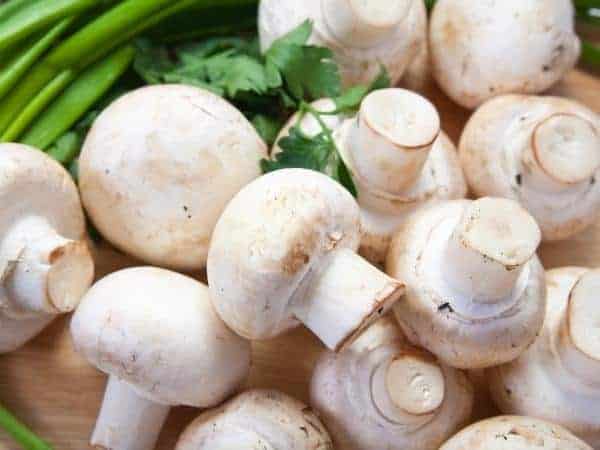Health benefits of mushrooms you didn’t know
The benefits of mushrooms are not limited to nutrition. There are numerous and surprising ways that mushrooms can benefit people and other living things. In this article, I will attempt to lift the curtain that once prevented us from fully realising why mushrooms should be a part of our diet.

What are mushrooms?
Mushrooms belong in a category all on their own when it comes to food. Often they are lumped into the vegetable group, but they are a type of fungus.
Which, unfortunately, is enough to influence some people to avoid them. I must admit it does not seem extremely appealing to think about eating fungus; however, upon closer examination, it turns out that mushrooms are actually quite beneficial.
Origins of mushrooms
Mushrooms are a primitive plant that has existed for millions of years and consists of many various species (some of which actually glow in the dark).
Although today mushrooms often find their way into our diet, there are also several other benefits of mushrooms. Have you considered growing your own mushrooms?
Several major medical breakthroughs were the result of studying fungus, the most famous of which occurred when penicillin was discovered.
Another fun fact that was discovered from Otzi, the 5,000-year-old Iceman who was found in the Alps, is that people once used dried mushrooms as tinder. Mushrooms also participate in a symbiotic relationship with plants and trees that help them obtain more water and nutrients. So, in addition to all the various functions of mushrooms, they also have an ecological purpose as well.
Mushrooms in medicine
Mushrooms have also been used and are being studied for medicinal purposes; some types of mushrooms contain glutamic acid, which helps to stimulate the immune system.
While some may not consider this beneficial, we have all heard of “magic” mushrooms and know that some people enjoy eating certain types of mushrooms because of their hallucinogenic properties.

Versatility in the kitchen
The great thing about mushrooms is their versatility in the kitchen. They are used in dishes from different ethnicities.
It would not be uncommon to find mushrooms in pasta, pizza, an Asian stir fry, in a salad, on top of the steak, or even fried with a cheese filling.
The mushroom’s presence in so many culinary treats not only adds a wonderful flavour and texture to a dish but provides important nutrients as well.
Mushrooms for nutrients
Mushrooms are a common and healthy substitute for meat due to their high protein content yet low-fat content. In addition to these attributes, mushrooms are also a great source of Potassium, Niacin, Selenium, Riboflavin, Thiamin, and several other minerals and vitamins.
Essentially, without getting too deep into the chemical science of nutrition, these materials work together to expedite metabolism and even enhance the immune system.
Many studies have been performed to study how mushrooms may play a role in preventing certain types of cancer, lowering blood pressure, and preventing heart disease.
Toxins in mushrooms
It is also true that mushrooms contain toxins; in fact, some contain so much they can cause death if eaten. Therefore, I would say that anyone endorsing picking wild mushrooms to eat without any legitimate training in classifying mushrooms is completely irresponsible.
Several varieties of mushrooms share similar characteristics and are difficult to distinguish on appearance alone. Therefore, I would recommend avoiding wild mushrooms and sticking to the supermarket to avoid any health risks.
Using mushrooms in recipes
Mushrooms are a wonderful ingredient that complements the flavour of many types of food. Whether you enjoy sauteing your mushrooms in butter, garlic, and white wine, throwing them in a salad without cooking them, adding them to a gravy, soup, or sauce, or deep-frying them.
I hope that you realise that they not only will function as a benefit to your palate but also your health, among other things. Have you tried my chicken and mushroom curry recipe yet?
More mushroom information
If you have a lot of mushrooms and want to dry them then I have an article to help with all the tips for drying mushrooms you need.
So many recipes I share include mushrooms that I have an entire article dedicated to mushroom related recipes. Check out my mushroom recipes here.
Other ingredients tips you may like
If you like to cook with different ingredients and find different ways of using them then here are a few other articles I think you might like.
- All you need to know about celeriac and how to use it
- Oats an original superfood with lots of uses
- Is couscous healthy, how you can use couscous well
- How to grow your own vegetables from scraps
- Jackfruit – what is it and how to use it
- Cranberry juice – what are the benefits of it and how can you enjoy it
- Seaweed – an unusual ingredient you should consider
